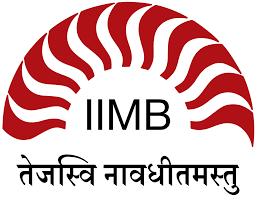Exploring the Future Scope and Benefits of B.Tech Telecommunication Engineering
A Bachelor of Technology (B.Tech) degree in Telecommunication Engineering is a specialized program that focuses on the design, development, and management of communication systems and networks. Telecommunication engineers play a crucial role in connecting people and devices through various communication technologies. This article explores the future scope and benefits of pursuing a B.Tech in Telecommunication Engineering.
B.Tech In Telecommunication Engineering Future Scope
1. 5G and Beyond: The deployment of 5G networks is transforming the telecommunications landscape, enabling faster data speeds, lower latency, and increased connectivity. Telecommunication engineers are integral in designing and optimizing 5G technology and will continue to work on future generations of wireless communication.
2. IoT Connectivity: The Internet of Things (IoT) is expanding rapidly, connecting billions of devices and sensors to the internet. Telecommunication engineers design and manage the networks that enable IoT communication, contributing to the growth of smart cities, industries, and homes.
3. Fiber Optic Networks: The demand for high-speed internet continues to rise. Engineers work on the deployment and maintenance of fiber optic networks, providing faster and more reliable broadband connectivity.
4. Satellite Communication: Telecommunication engineers are involved in satellite communication systems used for global connectivity, including satellite internet, television broadcasting, and GPS navigation.
5. Cloud Computing: The shift to cloud-based services relies on robust and efficient communication networks. Graduates work on network infrastructure to support cloud computing, data centers, and distributed computing.
6. Cybersecurity: With the increasing complexity of communication systems, cybersecurity is of paramount importance. Telecommunication engineers specialize in designing secure communication protocols and systems to protect against cyber threats.
B.Tech In Telecommunication Engineering Benefits
1. High Demand: Telecommunication engineers are in high demand globally due to the ever-increasing need for communication and connectivity. The telecommunications industry offers stable employment and competitive salaries.
2. Technological Innovation: The field encourages innovation as graduates work on cutting-edge technologies, including network optimization, software-defined networking, and the integration of emerging technologies like artificial intelligence and blockchain.
3. Global Relevance: Telecommunication skills are globally relevant, allowing graduates to work on international projects, collaborate with professionals worldwide, and address global communication challenges.
4. Entrepreneurship: Graduates have the opportunity to explore entrepreneurship by starting their telecommunication-related businesses, offering consulting services, or developing innovative communication solutions.
5. Career Advancement: With experience and additional qualifications, telecommunication engineers can advance to higher-level roles such as network architects, telecommunications consultants, or project managers, often with increased responsibilities and higher earning potential.
6. Versatility: Telecommunication engineers can work in various sectors, including telecommunications companies, technology firms, research institutions, government agencies, and more, making them adaptable to changing job market demands.
7. Impactful Work: Graduates have the opportunity to work on projects that have a direct impact on connecting people, businesses, and communities, enhancing communication and collaboration.
 4 Years
4 Years
 Under Graduate
Under Graduate
 Engineering
Engineering














 back
back

